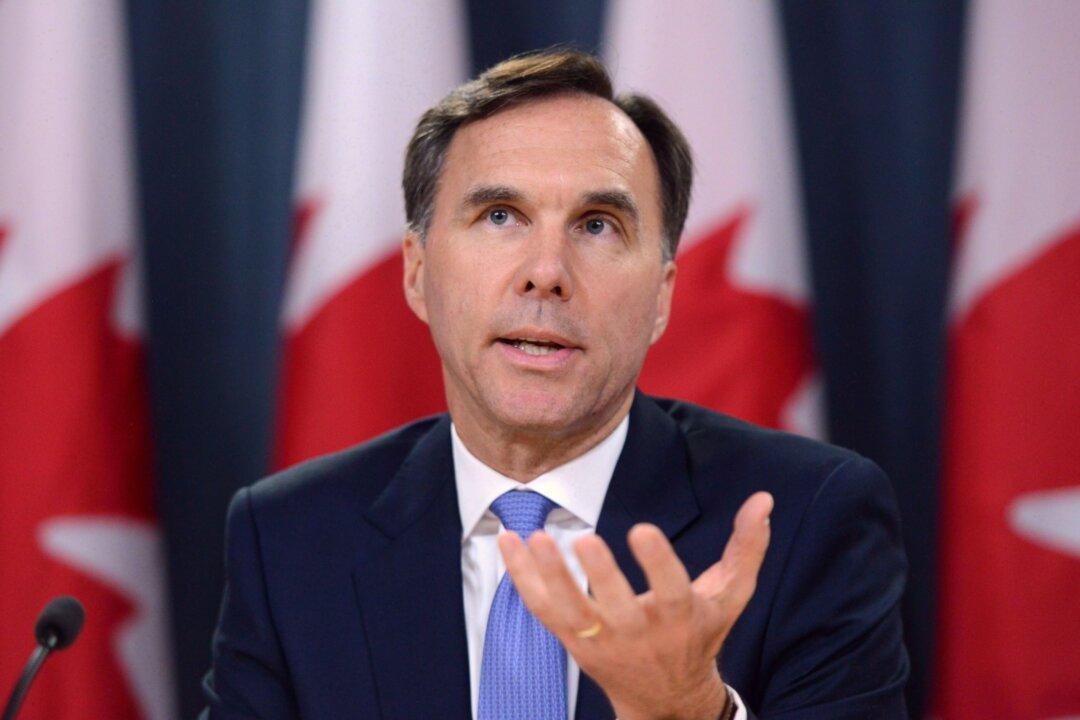The Liberal government needs to rethink several key policies in response to U.S. President-elect Donald Trump’s upcoming administration, former Liberal Finance Minister Bill Morneau says.
Trump vowed throughout his election campaign to protect the American economy by implementing a minimum 10 percent tariff on all imports to the United States. Canada has yet to receive any assurances that it will be exempt from the tax.





